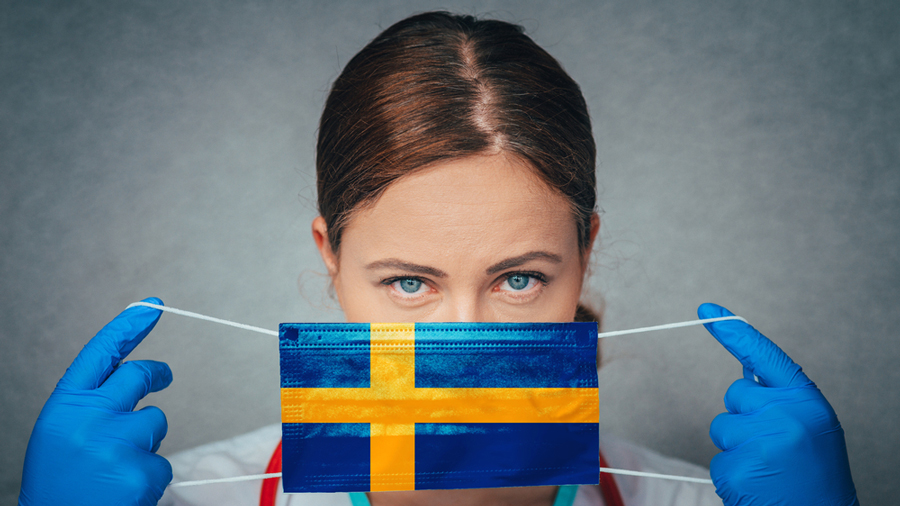Sweden has been an outlier in the pandemic: It eschewed lockdowns and kept restaurants, bars, schools, movie theatres and gyms mostly open. And while death rates were high compared to its Nordic neighbours, they were comparable to those of larger European countries.
Now, a second wave has brought a new surge in infections and Stockholm’s emergency services are overrun, forcing the authorities to recalibrate their approach.
They imposed new restrictions at the end of November that bring the country’s response somewhat more in line with the rest of Europe. They include drastic cutbacks on the size of public gatherings and some school closures.
But with ski lifts, restaurants and bars all remaining open, Sweden’s tougher restrictions still pale in comparison to the rest of Europe and there are mounting concerns that not enough is being done. Intensive-care beds in hospitals in the Stockholm region are all currently occupied, Bjorn Eriksson, a regional health director, said at a news conference on Tuesday.
“We are far beyond 100 per cent of capacity in intensive care. We are approaching almost double the number of available spaces,” he said.
Since the pandemic began, a debate has raged both inside and outside of Sweden over how to curb the virus. As other countries went into lockdown in the spring, Sweden stayed open out of concern that keeping everyone holed up at home would have long-term detrimental effects on children and adults and could lead to depression, suicide, postponed health care and job losses.
On Monday, the Swedish Prime Minister, Stefan Lofven, said the country’s experts had underestimated the likelihood of a second wave.
It was the first time an official criticised, even obliquely, the Public Health Agency of Sweden, the expert group tasked with making coronavirus policies, and the epidemiologist who leads it, Anders Tegnell.
In October, Tegnell said that he hoped that the spread of immunity in the population would help Sweden get through autumn with a low level of cases.
“I think that most in the profession did not see a second wave coming,” Lofven said in an interview with Swedish newspaper Aftonbladet.
Tegnell’s agency is no longer calling all the shots on virus policy and he is having to share the stage with Swedish politicians who have taken on a more active role.
During the first wave, deaths were high, especially among the elderly. On Tuesday, a special commission concluded in an initial report that the government had failed to protect the elderly and was unprepared for the pandemic. That said, death tolls among those above 80 have been high all across Europe.
Infection numbers and deaths have been rising steadily since October. By Tuesday, Sweden had reached a total of 320,098 cases since the beginning of the pandemic, while its neighbour Finland, with a population about half of Sweden’s, has 31,110 cases, less than 10 per cent of Sweden’s.
Sweden’s total death toll reached 7,667 as of Tuesday. The country now has 74 deaths per 100,000 cases, less than the UK, with 97, but far more than its neighbour Norway, with seven.
“I’m afraid it’s going to get even worse,” said Karin Hildebrand, a cardiologist in the intensive care unit of the Sodersjukhuset hospital in Stockholm. “We all fear the coming weeks. We do not have enough personnel to deal with this.”
Nurses have left their jobs in large numbers since the beginning of the pandemic.
“Around 3,000 nurses have quit their jobs during the first 10 months of the year,” said Sineva Ribeiro, the president of the Swedish Association of Health Professionals.
“Those who remained have been working very, very hard.”
And now the government is coming under criticism for not doing enough.
New York Times News Service











